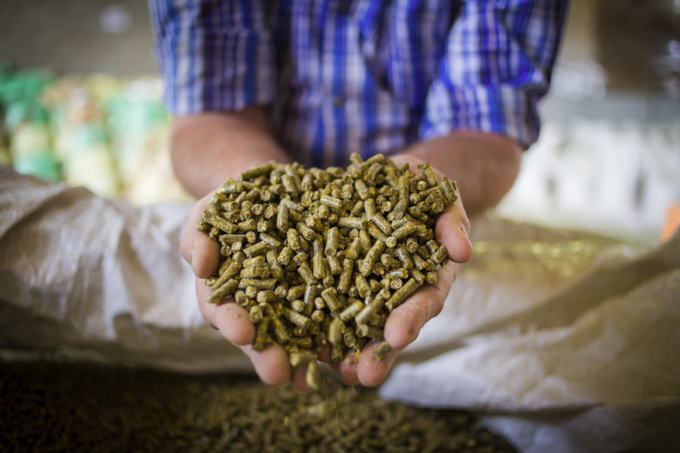November 25, 2025 | 07:33 GMT +7
November 25, 2025 | 07:33 GMT +7
Hotline: 0913.378.918
November 25, 2025 | 07:33 GMT +7
Hotline: 0913.378.918

Good Practices for the Feed Sector, described as a milestone in capacity development for feed safety.
The 23rd annual meeting of the International Feed Industry Federation (IFIF) and the Food and Agriculture Organization of the United Nations (FAO) underscored their collaborative efforts on issues essential to providing safe, nutritious and sustainable feed and food production.
Opening the meeting in Rome on Nov. 22, Thanawat Tiensin, assistant director-general and director of animal production and health division at the FAO, and Ruud Tijssens, chairman of the IFIF, welcomed delegates and reaffirmed the value of their partnership.
“Livestock production is a cornerstone of agrifood systems, providing essential nutrition and economic opportunities worldwide,” Tiensin said.
The IFIF is made up of national and regional feed associations from Africa, Asia Pacific, Europe, North and South America and the Middle East, as well feed-related organizations and corporate members from around the globe. IFIF members represent over 80% of total compound animal feed production worldwide.
The meeting addressed FAO’s vision for the sustainable transformation of the livestock sector, which includes reducing feed loss and waste, optimizing feed conversion, and enhancing nutrient use to reduce environmental impacts and antimicrobial resistance.
Topics highlighted during the meeting included:
While acknowledging the accomplishments, Tijssens also highlighted the updated FAO-IFIF Manual on Good Practices for the Feed Sector, described as a milestone in capacity development for feed safety.
“Together with the dedicated colleagues at FAO, we are building a science-based approach to support safe and sustainable animal nutrition that delivers affordable, high-quality food to a growing global population,” Tijssens said. “By producing more with less, and better across diverse production systems, we are making strides toward the United Nations Sustainable Development Goals (SDGs). The strength and quality of our exchanges with FAO are crucial, and each year our collaboration deepens as we continue to build on these achievements.”
Daniela Battaglia, animal production officer at the FAO, commended the FAO-IFIF collaboration, particularly in feed safety capacity development and the containment of antimicrobial resistance. She reiterated FAO’s commitment to work with the private sector and feed operators, saying that they can make valuable contributions to more responsible and sustainable livestock and food sectors through important public health, and animal health and welfare goals.
(FAO)

(VAN) ILDEX Vietnam 2026 will connect more than 250 exhibitors and 10,000 visitors from 40 countries.

(VAN) Hue City is accelerating efforts to combat IUU fishing, aiming to remove EC’s 'yellow card' and promote sustainable fisheries development.

(VAN) The recent torrential downpours and unprecedented flooding in the Southern Central Coast are a highly unusual meteorological and hydrological event.

(VAN) The Southern Central Coast and Central Highlands regions have suffered massive agricultural losses, with over 80,000 hectares of rice and crops, alongside millions of livestock, being swept away, causing severe damage to farmer livelihoods.

(VAN) Trieu Son commune deploys a 'virtual assistant' to help residents complete administrative procedures.

(VAN) Applying green technology in rural water supply and sanitation helps improve resource efficiency, protect the environment, and enhance community living standards.

(VAN) Developing biosecure livestock production is the key that helps Tuyen Quang form linked chains in livestock production and build its brand in the market.